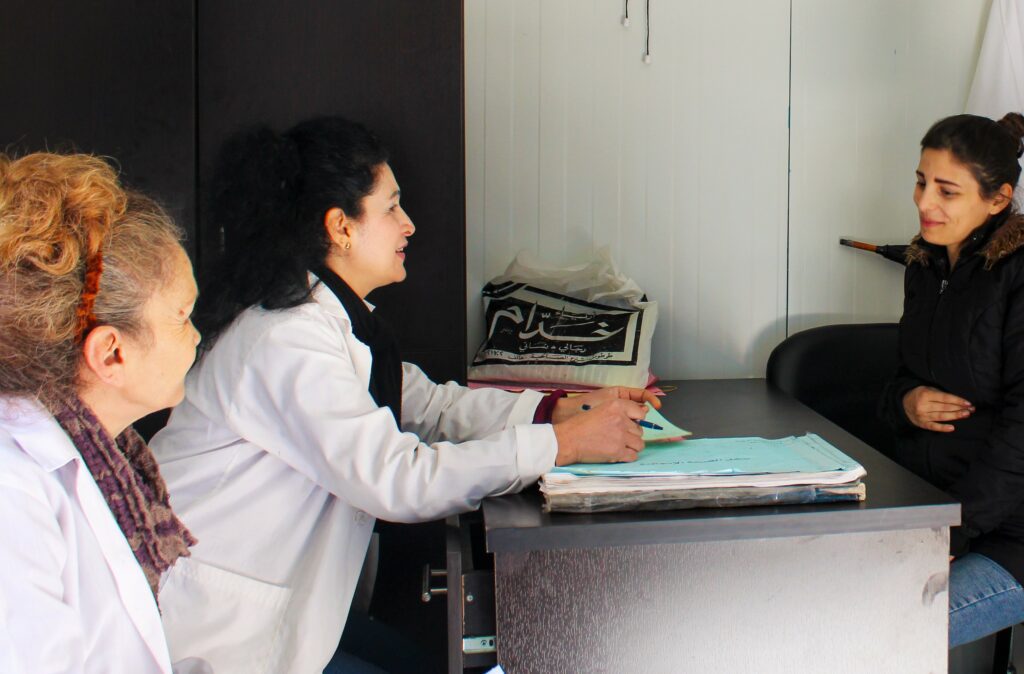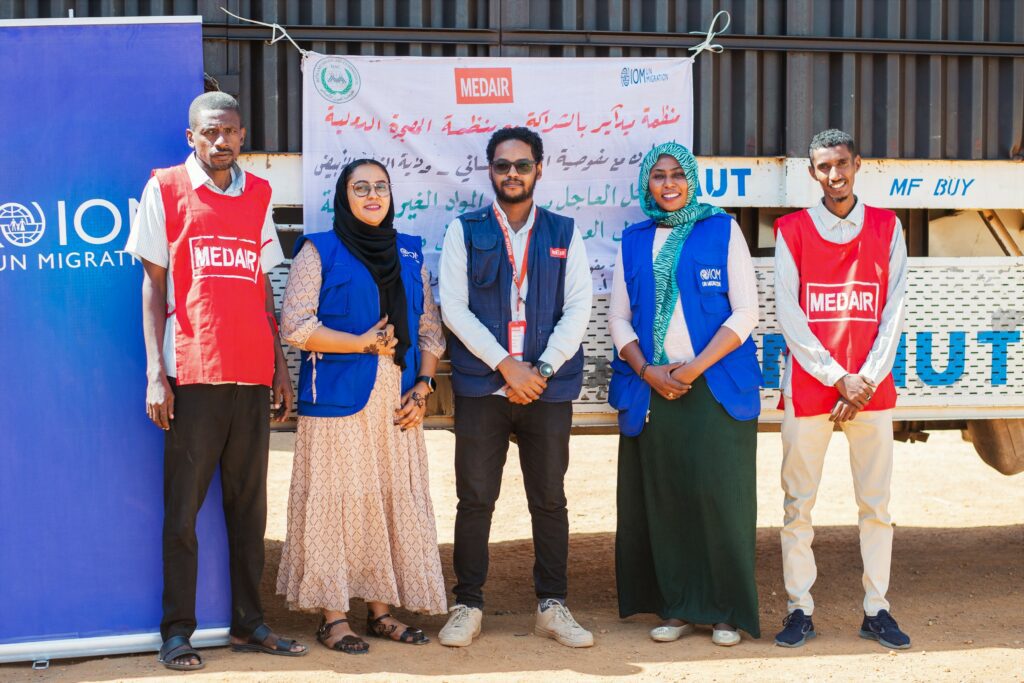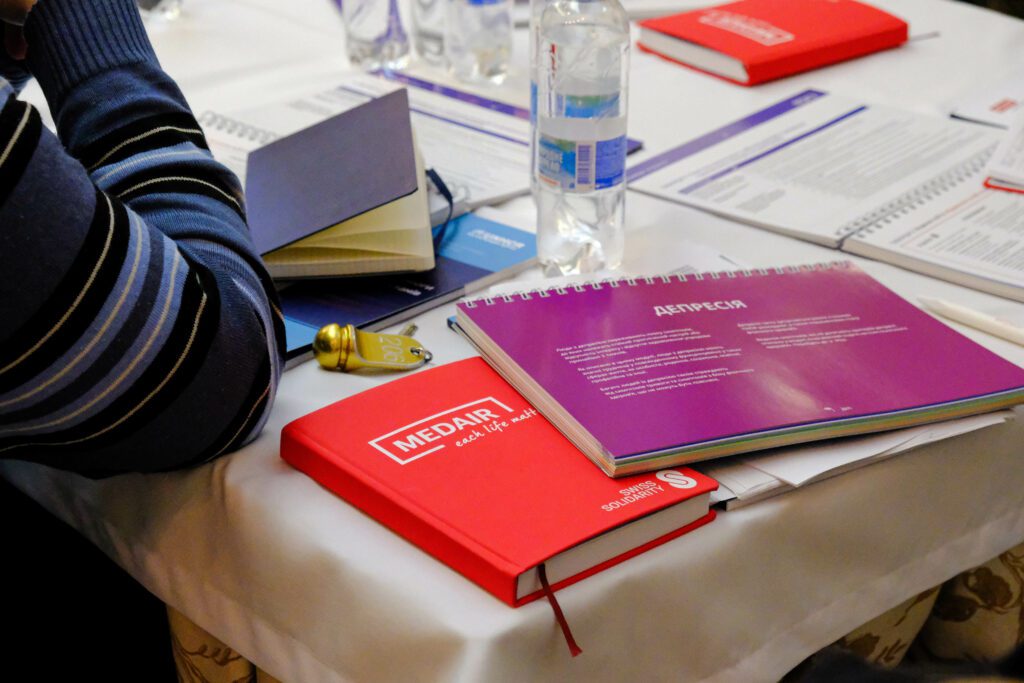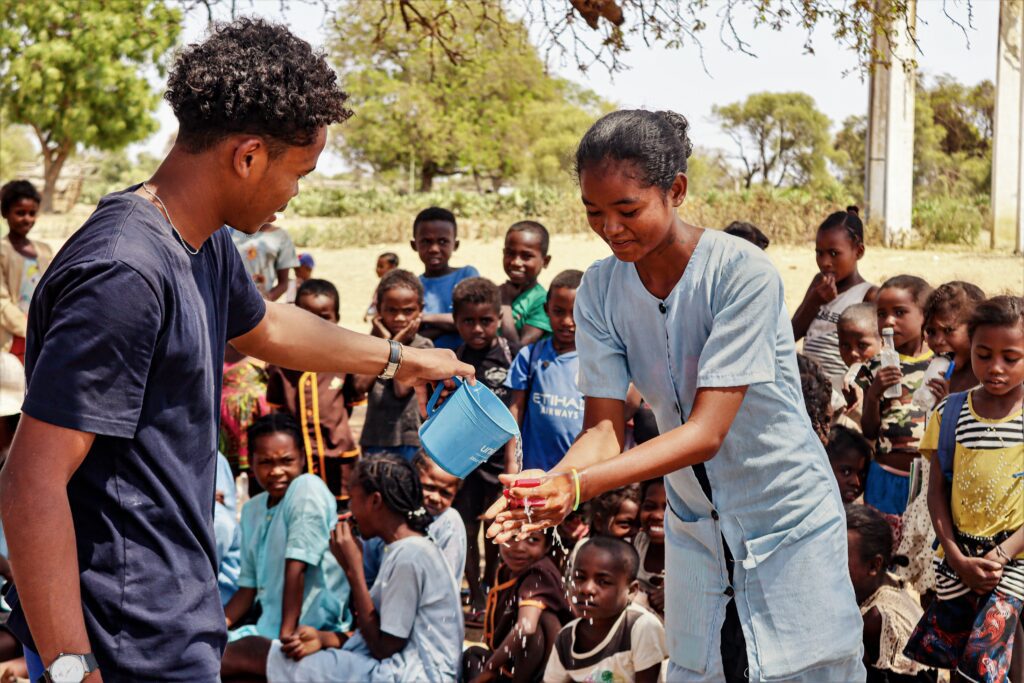Cash-for-health interventions help ensure that refugee families have access to essential health services and information.
Our cash-for-health intervention in Jordan helps vulnerable and refugee families cover the costs associated with giving birth or managing long-term health conditions such as diarrhoea or asthma. It’s a unique intervention to our Jordan programme, and one that has helped thousands of families – families like Farhana’s and Fawaz’s – access essential health services and information.
Here’s why we provide that service.
1. In Jordan, refugees are expected to cover their own health care costs – and those costs are often prohibitively expensive.
The cost of living in Jordan is very high – and health care is no exception. Syrian refugees who do not have work permits often struggle to find the means to feed their families and cover basic expenses like rent or food. They may have no other choice except to take on illegal work or beg simply to generate an income.
‘It is hard for Syrian refugees to pay for hospital bills or even get medication for their children when they are sick,’ says Razan, a health officer with our team in Jordan. ‘Many families just don’t have extra money to pay for hospital bills.’
Medair’s cash-for-health intervention in Jordan covers the health care costs associated with giving birth or managing long-term health conditions like high blood pressure or diabetes. This means we’re able to make use of Jordan’s well-established health care system and put the resources we have to the most effective use.
‘Medair’s cash-for-health intervention provides lifesaving assistance in a context-appropriate way,’ says Medair’s Deputy Country Director in Jordan, Margie Davis. ‘We are reaching the most vulnerable people, who cannot afford basic services such as delivering a baby in a health facility, and providing them with the cash directly for the needed service.’
2. Pregnant women and people living with chronic illnesses need specialised care – and we can provide it.
Our health officers and volunteers spend extensive time with each individual family we serve. Our colleagues carefully assess each family’s most pressing needs, listen to their concerns about their medical appointments, and help identify any complicating factors that could create challenges during birth or in the management of chronic illnesses. Where necessary, we refer families to other organisations for additional assistance.
By keeping in close contact with the families we serve both during and after the birth or throughout the management of conditions such as diabetes, asthma, or hypertension, we’re able to assess what assistance they may need and anticipate the health care costs that may be incurred as a result.
While costs for birth are covered after the delivery of the newborn baby, medical costs for long-term health coverage are covered every three months and dispensed using ATM cards provided to each family. The amount each family receives is fixed based on medication provides and information gathered from families that Medair has previously served. Our health officers regularly visit patients to follow up on their wellbeing.
3. Cash is just one part of the equation. It’s also about connection.
Our cash-for-health interventions are accompanied by training and awareness sessions that ensure that vulnerable families have access to the information they need to make healthy living choices for their mental and physical health. These sessions give the families we serve a chance to connect with each other and with themselves.
‘These sessions helped me understand what to do to stay healthy in accessible and simple ways,’ says Taswahin, a Syrian refugee living in East Amman. ‘A 30-minute walk around the block with my daughter each day and eating healthily made a noticeable improvement to my health.’
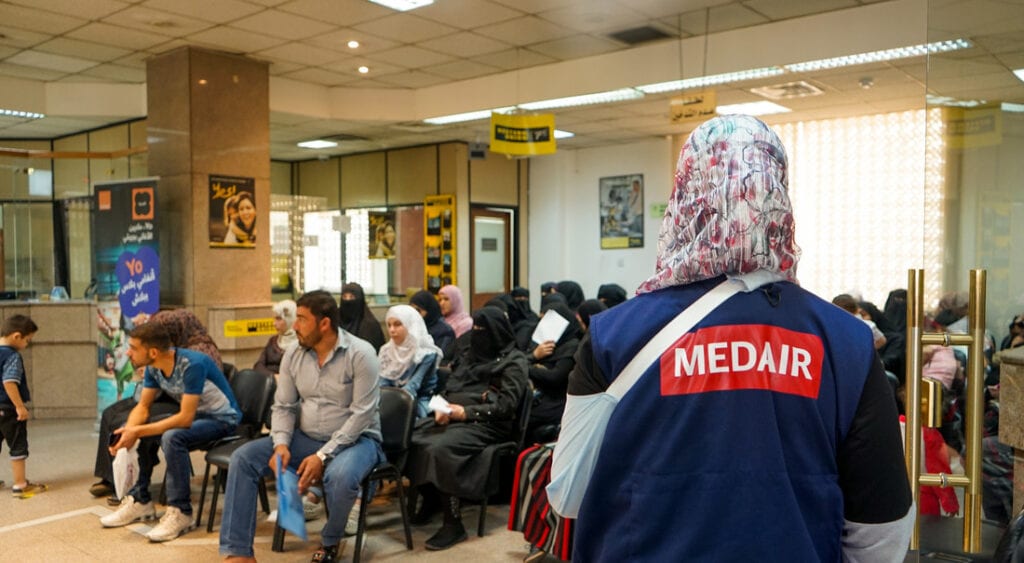
One of Medair’s cash distribution points in Amman, Jordan.
Medair’s work in Jordan is supported by EU Civil Protection and Humanitarian Aid, German Foreign Federal Office, UN Office for the Coordination of Humanitarian Affairs, Swiss Agency for Development and Cooperation, and generous private donors.
This content was produced with resources gathered by Medair field and global support office staff. The views expressed herein are those solely of Medair and should not be taken, in any way, to reflect the official opinion of any other organization.


